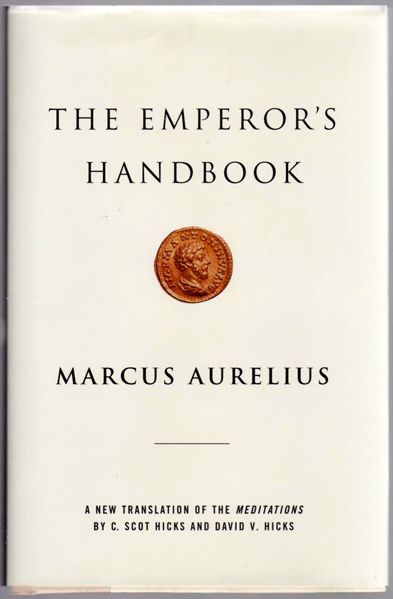This is perhaps not the best place for this Q, but I'm not able to find any site more suitable. (Have looked at English Language and Usage, Writers and the like, but doesn't seem to fit.)
Towards the end of Black Sails third episode we are given a read by Miranda from Marcus Aurelius Meditations. With the possibility of not recapturing it correctly it goes something like:
– The emperor writes: How should you be?
You should be like a rocky promontory against which the restless surf continuously pounds. It stands fast while the churning sea is lulled to sleep at its feet.
I hear you say – ``How unlucky that this should happen to me''. But not at all. Perhaps say instead how lucky I am that I am not broken by what has happened, and I am not afraid of what is about to happen. For the same blow might have stricken any one, but not many who would have absorbed it without capitulation and complaint.
Is this from an existing translation / rewrite, or is it a rework by the authors of the TV-series?
Translation (1862) by George Long (1800 – 1879) can be found here, which at end of book four has:
[…] Be like the promontory against which the waves continually break, but it stands firm and tames the fury of the water around it. […]
It reminds me of the quotation from Dante's La Vita Nuova read by The Doctor in the Star Trek episode Latent Image in which he reads:
– In that book which is my memory, On the first page of the chapter that is the day when I first met you, Appear the words, 'Here begins a new life'.
Where the more literal translation say:
In that part of the book of my memory, Before which is little that can be read, There is a rubric, saying, 'Incipit Vita Nova'. (Here beginneth the new life.)
Is this the same case? A rework by the script writers, or is it from an existing translation?

